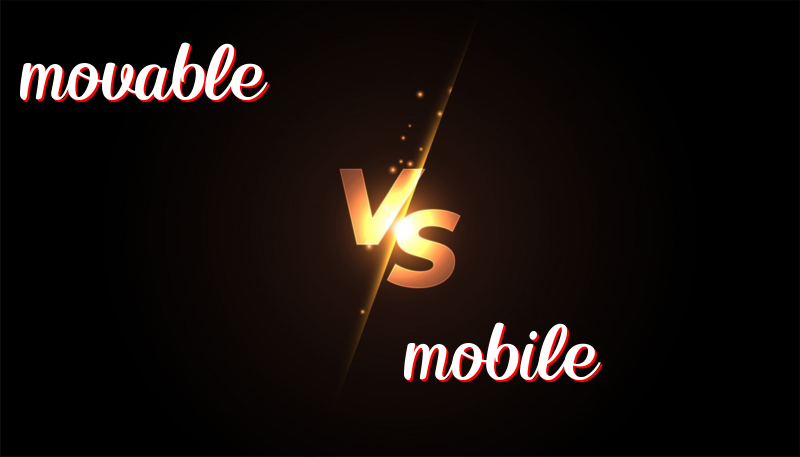英語單詞movable 與 mobile的區別
September 21, 2024
可移動 vs. 移動: 詳細區別解析
在學習英語的過程中,我們經常會遇到一些意義相似但用法不同的單詞。今天,我們將詳細解析兩個這樣的單詞——”movable” 和 “mobile”。這兩個詞雖然都與“移動”相關,但在具體用法和語境上有明顯的區別。
詞源
“Movable” 來自中世紀英語中的 “moveable”,其基本意義就是能夠被移動的。
“Mobile” 則來自拉丁語“mobilis”,意為“能夠移動的”或“靈活的”。
用法解析
“Movable”
詞義:能夠被移動的東西。一般用來形容物品的可移動性。
用法:多用於形容家具、設備等物理上可以移動的東西。
“Mobile”
詞義:能夠移動或容易改變位置的。可以用來形容人、交通工具、技術設備等。
用法:多用於形容更具靈活性和機動性的事物。
記憶技巧
要記住這兩個單詞的區別,可以想像“movable”是一個可以被抬起和移動的桌子,“mobile”則是一個可以自由大量移動的手機。
例句
Movable
- The table is movable, so we can push it against the wall.
這張桌子是可移動的,所以我們可以把它推到牆邊。 - They installed movable partitions to create smaller conference rooms.
他們安裝了可移動的隔板來創建小型會議室。 - Most of the furniture in the hotel room is movable.
酒店房間裡的大多數家具都是可移動的。 - The barbecue grill in the backyard is movable.
後院的燒烤架是可移動的。 - These old statues are not movable without proper equipment.
這些舊雕像沒有適當的設備是無法移動的。
Mobile
- They use mobile phones to stay connected.
他們使用移動電話保持聯繫。 - The army deployed mobile units to respond to the crisis.
軍隊部署了機動部隊來應對危機。 - She bought a mobile home to travel across the country.
她買了移動房屋來進行全國旅行。 - The new app allows mobile banking from anywhere.
這個新應用程式允許在任何地方進行移動銀行業務。 - The elderly need to remain mobile to maintain their health.
老年人需要保持行動自如以維持健康。
總結
簡而言之,”movable” 和 “mobile” 都涉及到“移動”,但”movable”更側重於物體的“被移動性”;而 “mobile” 則強調靈活性和機動性,適用範圍更廣泛。通過記憶這兩個詞各自的特點和主要用法,我們可以更加準確地使用它們。

Leave a Reply
You must be logged in to post a comment.